The world’s biggest co-living space offers a hangover drip, 'sky pool'
Co-living is bigger than ever — literally.
The Collective Canary Wharf, a 20-story, 705-room co-living building — with eye-popping amenities like an Olympic-size “sky pool” and a hangover drip — is the largest co-living space in the world based on number of units, according to its developer.

Co-living is a shared living experience that gives tenants the privacy of their own room while facilitating social connections through shared spaces and amenities. For about $130 (£80) a night or $420 (£330) a week, a person gets their own room, kitchenette and bathroom, free WiFI, professional room cleaning and linen change services at The Collective Canary Wharf.
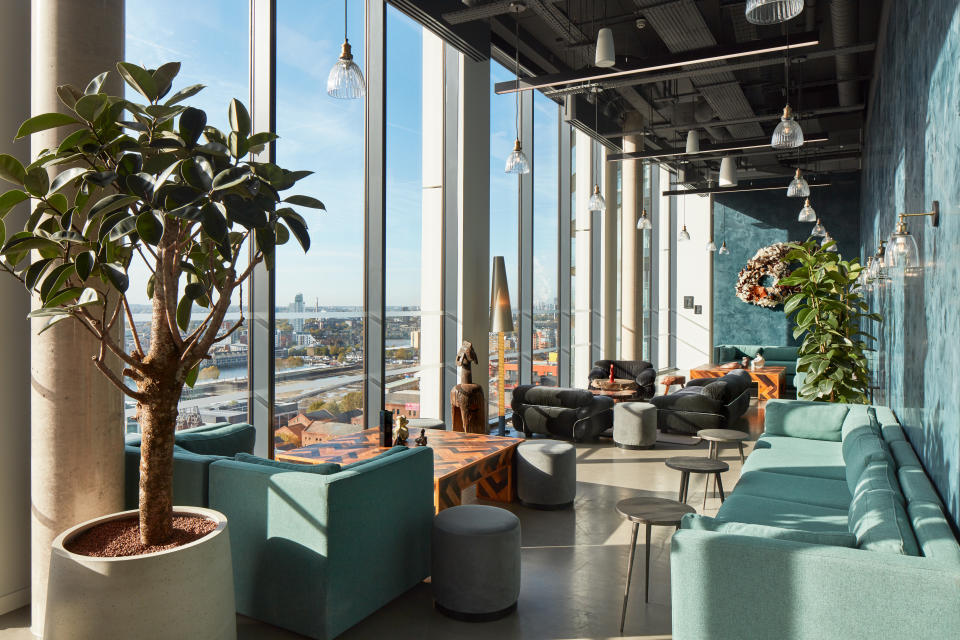
“With loneliness on the rise in our cities, more than ever we find people are looking to make tangible connections,” said The Collective founder and CEO Reza Merchant in a statement. “The Collective is a direct response to this need.”
The new construction, custom co-living development is located in Canary Wharf, London’s financial hub, where Barclays, Citigroup, JPMorgan Chase, Morgan Stanley, Deutsche Bank, and other prominent firms have offices and about 315,200 people work.

The 20th floor of The Collective Canary Wharf is topped with an Olympic-sized pool with floor-to-ceiling windows offering panoramic views of the city. Members can relax at the spa, fully equipped with a sauna and nail salon, and where residents can get deep-tissue massages and a hangover drip (typically a saline infusion with electrolytes and vitamin B to rehabilitate after a big night out).
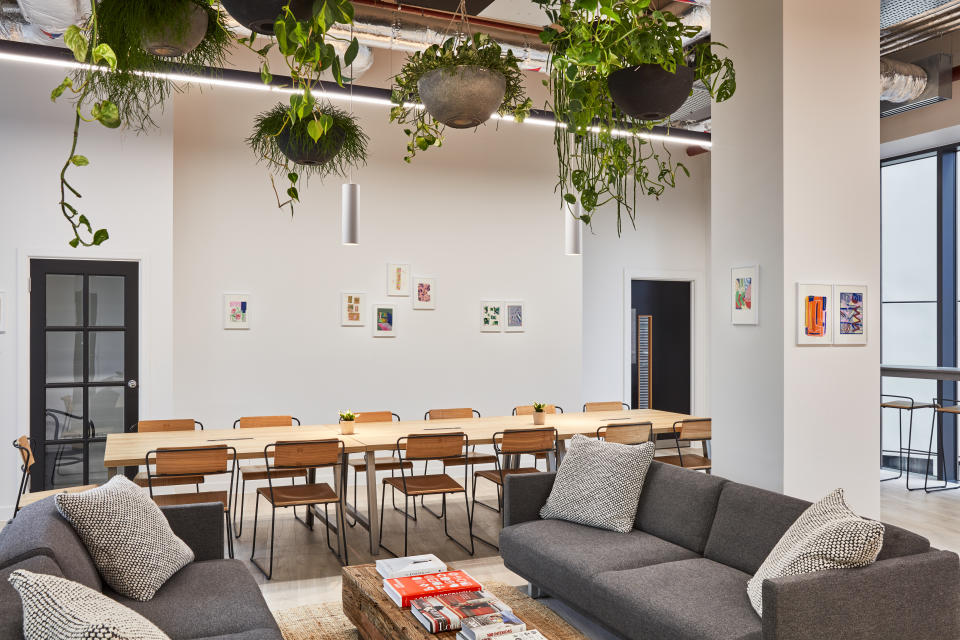
The gym offers a personal trainer and group classes. Plus, the building has a virtual reality golf simulator and game room, a co-working space, a 40-seat cinema, and a library. Members connect by cooking and eating together in the communal kitchen and dining areas, or meeting in the building’s basement bar.
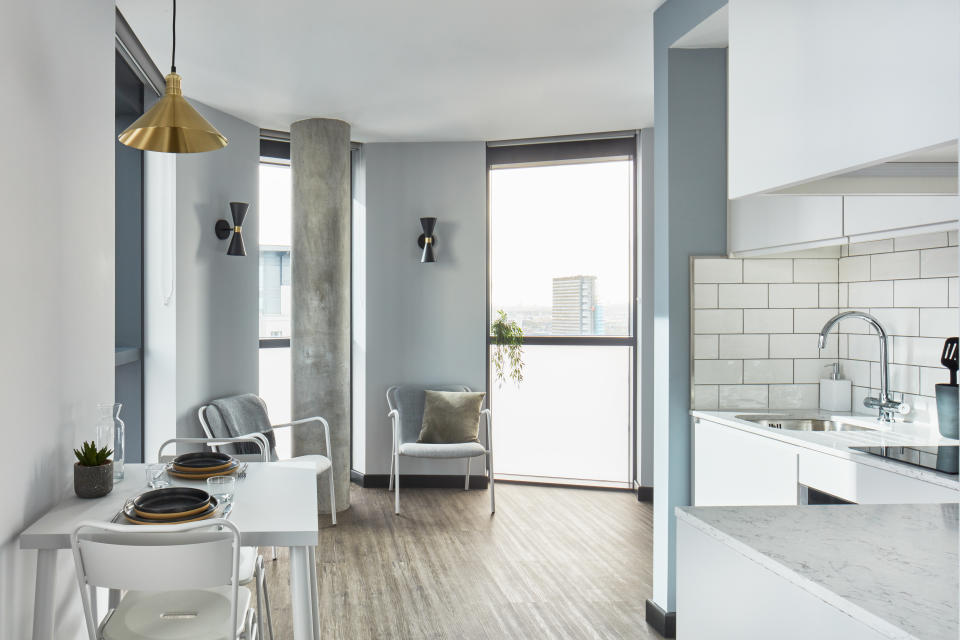
“We really want it to be a destination and want to provide members with an amazing space,” said Ed Thomas, The Collective’s Customer Experience Lead.
The community also offers two to three free nightly classes for members, from breathing and mental health sessions and live music performances, chef-run supper clubs, to community member-run coding classes and jewelry-making workshops. The activities are bookable through The Collective’s mobile app.

Mthr, the 20th-floor restaurant with panoramic views, is slated to open to the public on November 11 — and to members at a 10% discount. The menu is crafted by head chef Arnaud Delannay to facilitate community, from shared appetizers to “family style” entrees to group desserts.
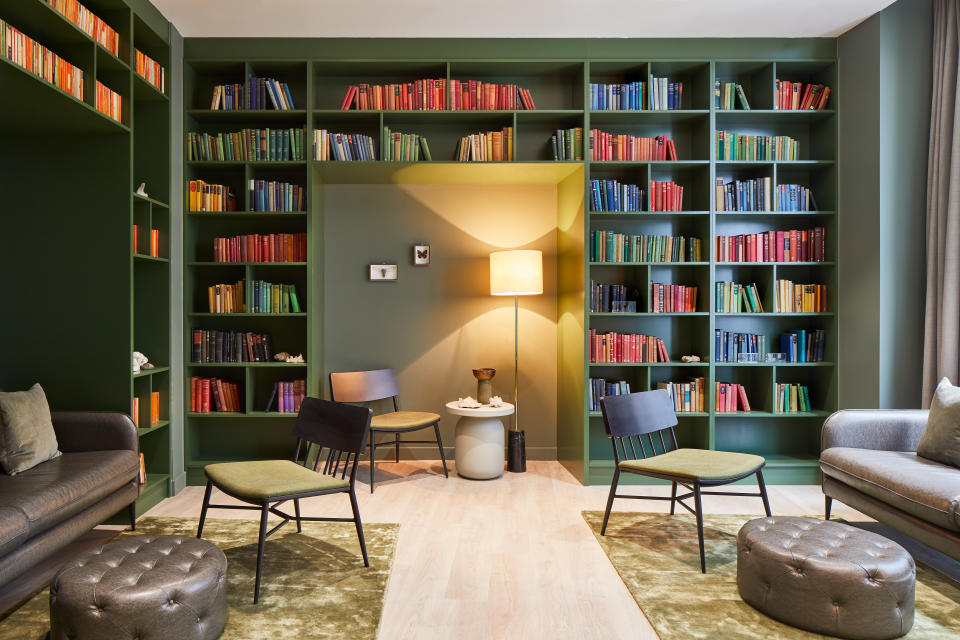
A home for nomadic millennials
The Collective Canary Wharf is the first to allow flexible stays, according to the company. From one night to 12 month stays, the model is structured to give travelers a sense of being a part of a community.
“People are more nomadic these days. People do not have to build their lives around tenancy agreements… We believe people can have a transformational experience in a one-night stay,” said Thomas.
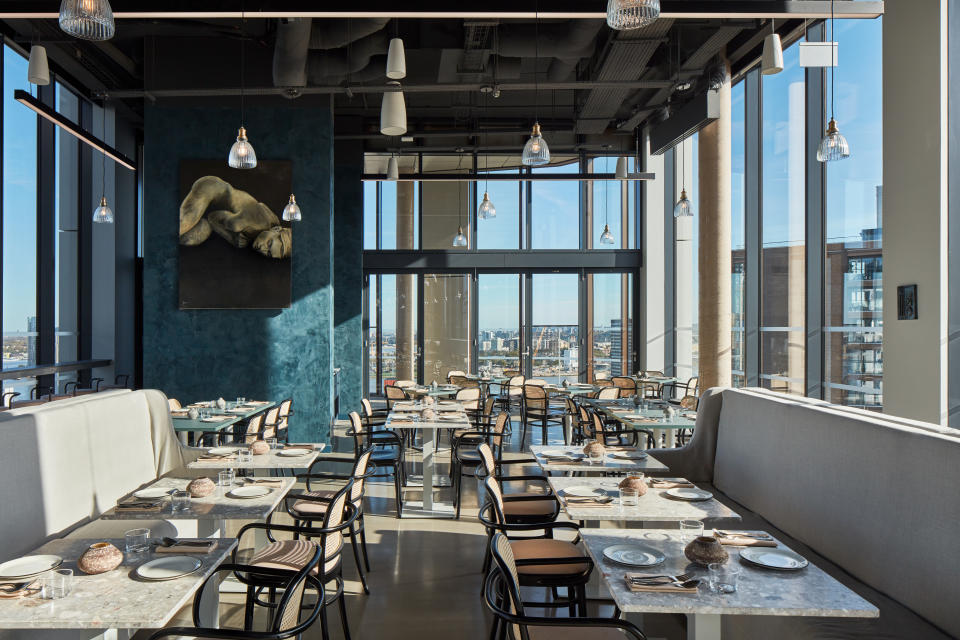
Only one week after launch, the The Collective Canary Wharf is at 80% capacity.
“It is the best of both worlds because you surround yourself with like-minded people, but you also have your own privacy and your own space,” said Adam Saez, a resident (member) at the new Canary Wharf location who previously stayed at the Collective’s first location, The Collective Old Oak.
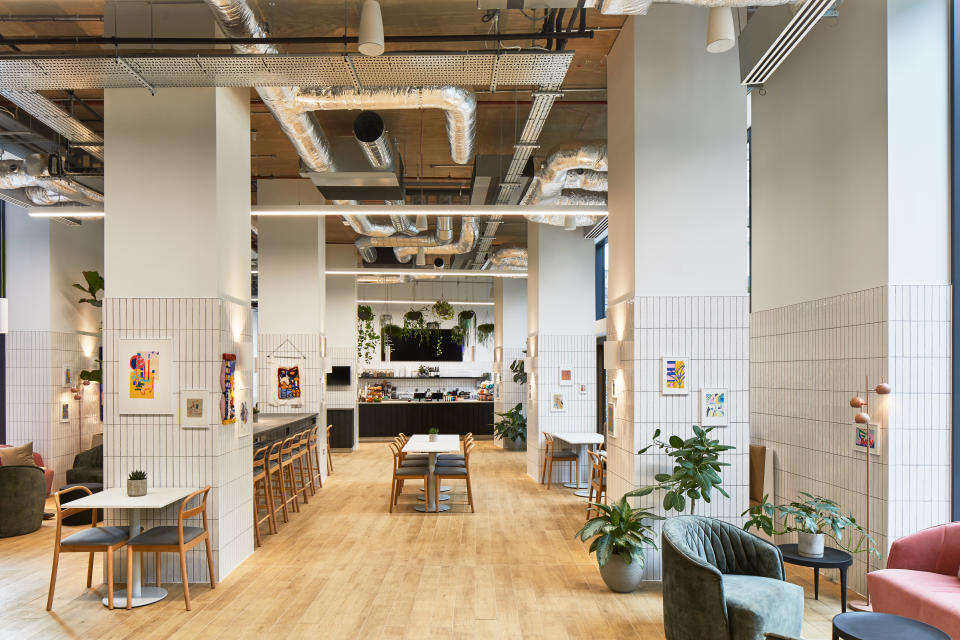
The ‘sharing economy’
The Collective, which also has a co-living space on the west side of London, has been in high demand. Since September 2016 Its first location has a 97% occupancy. Members have become friends, started businesses, gotten married, and had babies, said Thomas.
The company is planning a total of 8,500 units in New York City, the UK and Europe. The Collective ishas raised about $1 billion in investments and one of its most notable investors is DTZ Investors, a specialist European real estate fund manager. Like Uber, WeWork and Airbnb, The Collective is riding the wave of the burgeoning sharing economy.
“There has been a value shift from owning to accessing,” said Thomas. “I don’t think there has ever been a more relevant time for co-living.”
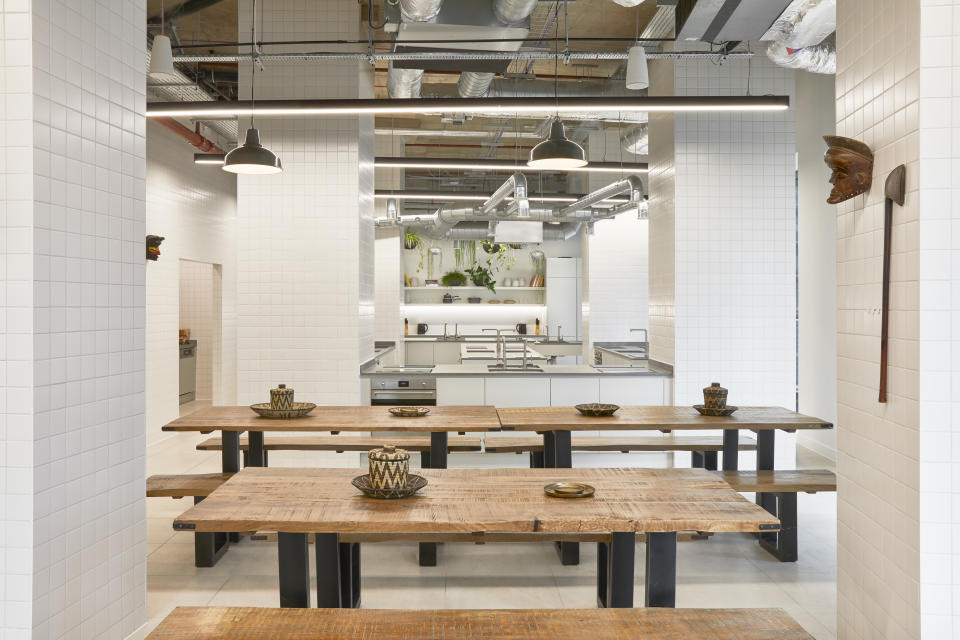
Sarah Paynter is a reporter at Yahoo Finance. Follow her on Twitter @sarahapaynter
Read the latest financial and business news from Yahoo Finance
Follow Yahoo Finance on Twitter, Facebook, Instagram, Flipboard, SmartNews, LinkedIn, YouTube, and reddit.
More from Sarah:
This village is home to the tiniest apartments in the US
This startup wants to help make renting a home more affordable
